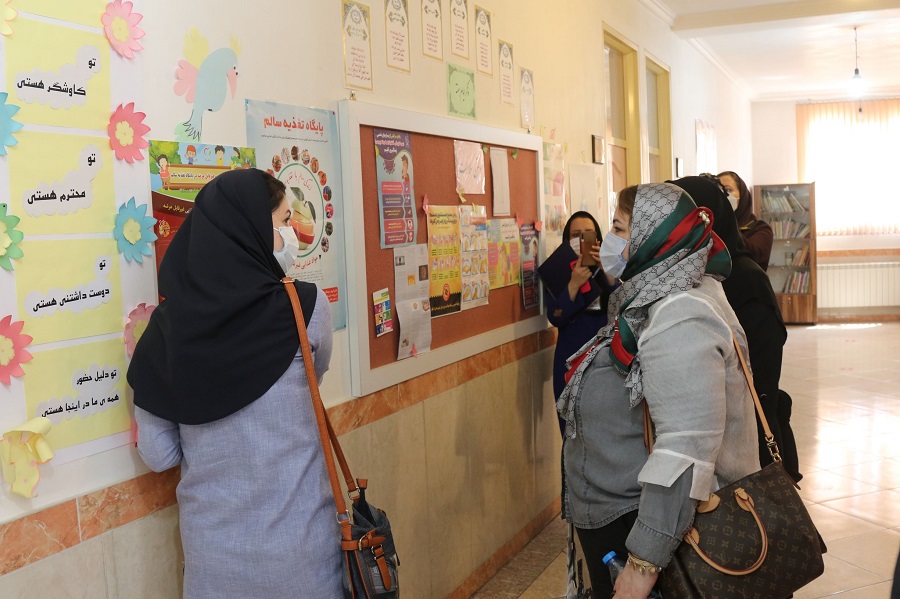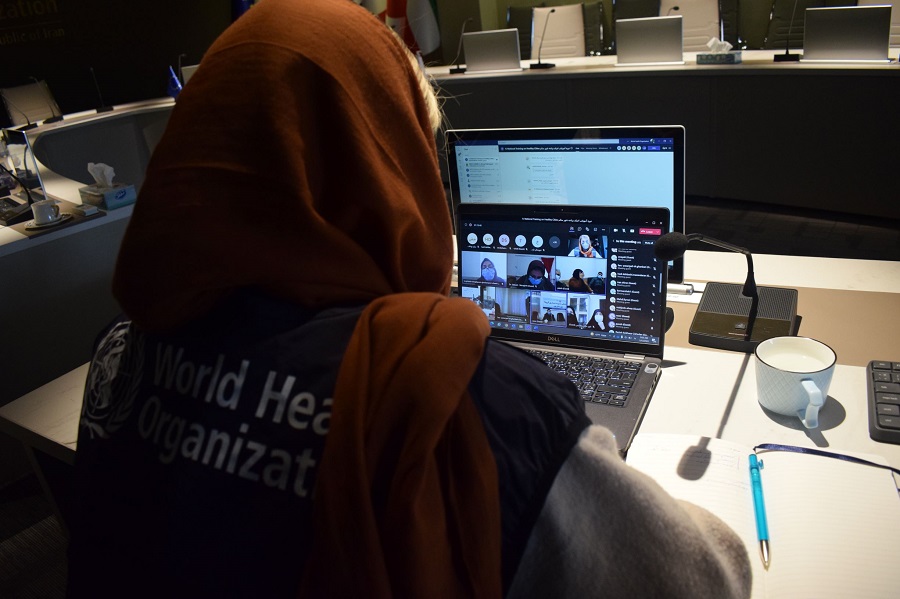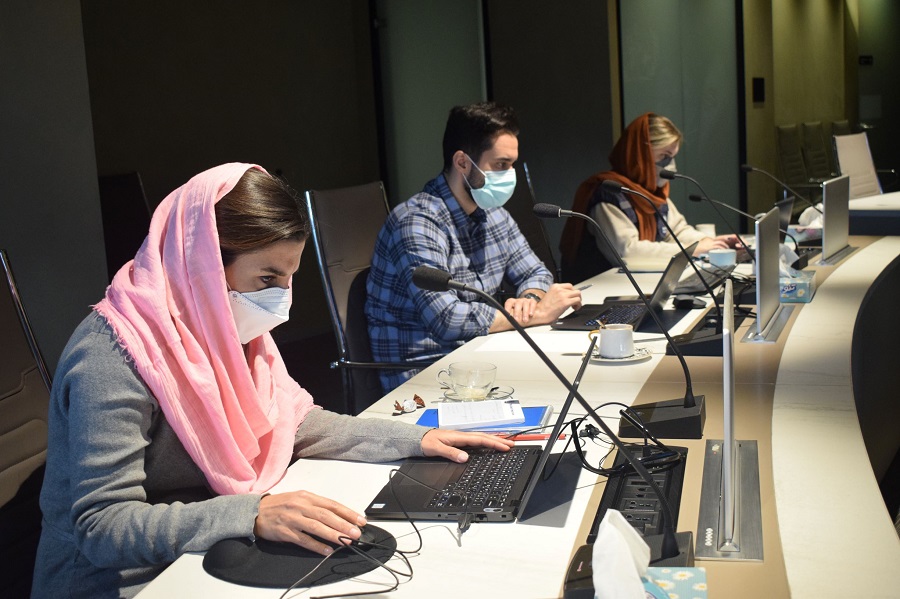 Dr Samar ElFeky, Technical Officer for WHO community-based initiatives and healthy settings programe, is briefed on implementation of activities at a school in Sahand Healthy City, the first WHO-awarded healthy city in Islamic Republic of Iran, during a visit to the city in May 2021. Credit: WHO/Islamic Republic of Iran
Dr Samar ElFeky, Technical Officer for WHO community-based initiatives and healthy settings programe, is briefed on implementation of activities at a school in Sahand Healthy City, the first WHO-awarded healthy city in Islamic Republic of Iran, during a visit to the city in May 2021. Credit: WHO/Islamic Republic of Iran
Wednesday, 19 January 2022 – As part of national plans to intensify implementation and promotion of the World Health Organization’s (WHO) Healthy Cities Programme in the country, a 3-day national training session was conducted for participants from a host of universities and institutions, as well as nongovernmental organizations, in 10 cities across the Islamic Republic of Iran.
Training was held on 28 December 2021, 5 January and 12 January 2022, as a collaborative effort between the WHO country office in Islamic Republic of Iran, Ministry of Health and Medical Education and the Health Services Management Research Centre affiliated to Tabriz University of Medical Sciences.
The sessions brought together technical and managerial representatives from the Ministry of Health, Universities of Medical Sciences, health networks, governors' offices, municipalities or city councils, law enforcement and several local nongovernmental organizations in 10 cities or districts across 9 provinces, including District 13 of Tehran city, cities of Jolfa and Maragheh in East Azerbaijan province, Rahmhormoz in Khuzestan province, Pasargad in Fars province, Noor in Mazandaran province, Souran in Sistan and Balouchstan province, Paveh in Kermanshah province, Aran-Bidgol in Isfahan province, and Torghabeh in Khorasan Razavi province.
The participants gathered in 3 virtual sessions over one month to learn about the 9 pillars of WHO’s Healthy Cities Programme and gain hands-on experiences on each pillar using the experience of Sahand, the first WHO awarded Healthy City in Islamic Republic of Iran through audiovisual training and live consultation sessions from representatives of Sahand's programme. Throughout this highly interactive training, participants engaged in multiple roundtable and group activities to brainstorm and design the first steps of preparation for implementing the programme.
Islamic Republic of Iran started implementation of the programme for the first time in the Eastern Mediterranean Region in 1991 by piloting the project in 3 settlements in Tehran. In 2021, Sahand successfully received the Healthy Cities Award from WHOafter a thorough evaluation based on the WHO Regional Office's Healthy Cities indicators. The successful experiences of Sahand's implementation of the programme are the baseline example for expansion of the programme in the country. Accordingly, together with Sahand, cities participating in the training are among the first to join and expand the Iranian National Healthy Cities Network. National healthy cities networks are proven mechanisms for ensuring political commitment, increasing synergy and facilitating implementation of healthy cities programmes and the Iranian Healthy Cities Network is the first to be implemented in the Region.
The training programme will continue to be held over the next year through monthly gatherings and refresher sessions for participants to report on their progress, seek technical consultations from national and international experts, facilitate peer learning, and share their experiences together.


More details regarding the Islamic Republic of Iran’s Healthy Cities project, its achievements and accreditation by WHO can be found in the following two videos:


